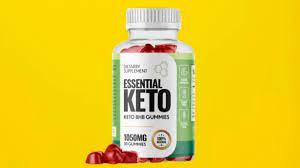Achieving lean muscle definition is not merely a product of relentless hours at the gym; it is a harmonious blend of disciplined training and strategic nutrition. In the quest for a chiseled physique, understanding how to structure your diet is paramount. This article delves into the science and art of nutrition tailored for those aiming to enhance muscle definition while minimizing body fat. With a confident approach, we will guide you through essential dietary principles, nutrient timing, and meal planning strategies that are crucial for sculpting a lean, muscular body. Whether you’re a seasoned athlete or a fitness enthusiast, this comprehensive guide will empower you to optimize your diet, ensuring every meal contributes effectively to your muscle-defining goals.
Mastering Macronutrient Ratios for Optimal Muscle Growth
Achieving optimal muscle growth hinges on understanding and mastering the balance of macronutrients in your diet. To fuel muscle repair and growth effectively, it’s crucial to prioritize your intake of proteins, carbohydrates, and fats in precise proportions. Proteins are the building blocks of muscle tissue, so aim for a daily intake of 1.6 to 2.2 grams per kilogram of body weight. This will ensure your muscles have the necessary resources for growth and recovery. Carbohydrates, often misunderstood, are equally vital as they provide the energy required for intense workouts. Allocate around 45-55% of your daily caloric intake to carbohydrates to maintain energy levels and support muscle glycogen replenishment.
Fats, while often vilified, play a pivotal role in hormone production, including testosterone, which is essential for muscle growth. Ensure that about 20-35% of your caloric intake comes from healthy fats like those found in avocados, nuts, and olive oil. For a well-rounded approach, consider incorporating the following tips into your diet strategy:
- Plan your meals to include a source of protein in every meal.
- Balance your plate with complex carbohydrates like whole grains and vegetables.
- Incorporate healthy fats to support overall health and hormonal balance.
- Monitor your progress and adjust macronutrient ratios as needed based on your body’s response.

Strategic Meal Timing to Enhance Muscle Definition
Optimizing when you eat can significantly impact your journey toward lean muscle definition. Timing your meals strategically ensures that your body has the necessary nutrients at the right times to support muscle growth and fat loss. Here are some key points to consider:
- Pre-Workout Nutrition: Consuming a balanced meal with carbs and protein 1-2 hours before exercising fuels your muscles, providing energy and enhancing performance.
- Post-Workout Recovery: Within 30 minutes to an hour after your workout, prioritize a protein-rich snack or meal to support muscle repair and growth.
- Regular Meal Intervals: Eating every 3-4 hours keeps your metabolism active and provides a consistent supply of nutrients, helping maintain muscle mass while reducing body fat.
By aligning your meals with your body’s needs, you not only support muscle definition but also optimize your overall energy levels and recovery. Implement these strategies consistently, and you’ll be well on your way to achieving a more defined physique.
Choosing the Right Supplements for Lean Muscle Development
To effectively enhance lean muscle growth, selecting the right supplements is crucial. Whey protein is a staple for muscle repair and growth, providing essential amino acids that the body absorbs quickly. Consider incorporating creatine into your regimen; it’s a well-researched supplement known to boost strength and increase muscle mass. Additionally, branched-chain amino acids (BCAAs) can be beneficial, especially when training intensely, as they help reduce muscle soreness and fatigue.
- Whey Protein: Quick absorption, aids in muscle repair.
- Creatine: Enhances strength, promotes muscle gain.
- BCAAs: Reduces muscle soreness, supports recovery.
Don’t overlook beta-alanine, which can improve exercise performance by increasing muscle endurance. Including a high-quality multivitamin ensures that your body receives the necessary micronutrients for optimal performance and recovery. Remember, supplements should complement a balanced diet, not replace whole foods. Prioritize natural sources of nutrients and use supplements to fill specific gaps in your nutritional plan.

Creating a Sustainable and Effective Workout Nutrition Plan
When aiming to achieve lean muscle definition, it’s crucial to align your nutrition with your workout goals. A sustainable and effective nutrition plan should focus on providing your body with the right nutrients at the right times. Start by ensuring each meal includes a balance of protein, healthy fats, and complex carbohydrates. This not only fuels your workouts but also aids in muscle recovery and growth.
- Protein: Essential for muscle repair and growth, aim for sources like chicken, fish, eggs, and legumes.
- Healthy Fats: Include sources such as avocados, nuts, and olive oil to support overall health and hormone production.
- Complex Carbohydrates: Choose whole grains, sweet potatoes, and quinoa to provide sustained energy throughout the day.
Hydration is another cornerstone of effective workout nutrition. Make it a habit to drink plenty of water throughout the day to maintain optimal performance levels and support muscle function. Consider adding a post-workout meal or snack rich in protein and carbohydrates within 30 minutes of exercising to kickstart recovery. By structuring your diet around these principles, you’ll be well on your way to achieving the lean muscle definition you desire.




